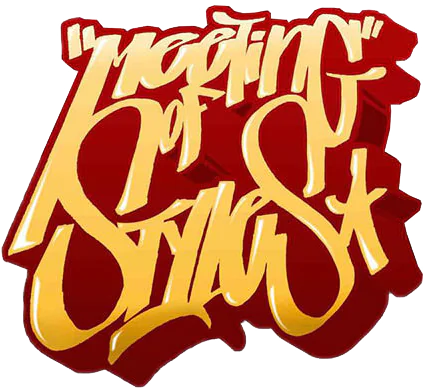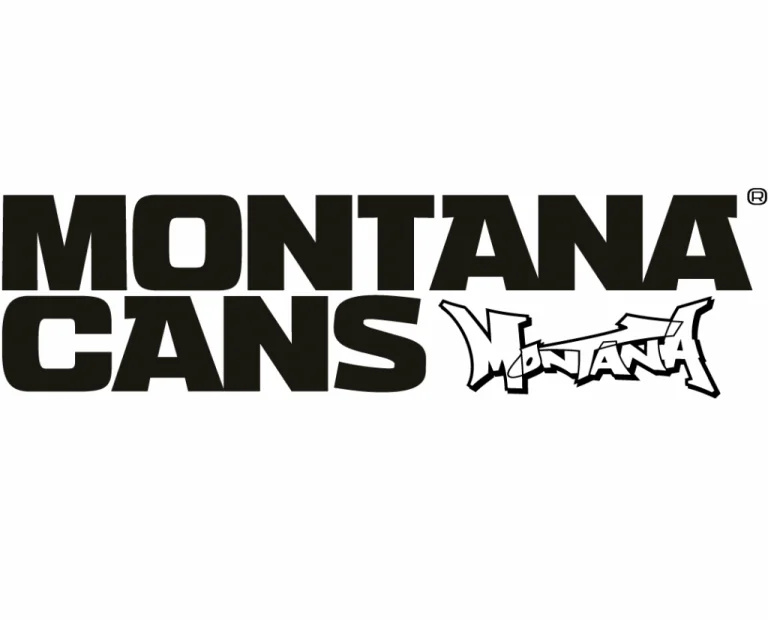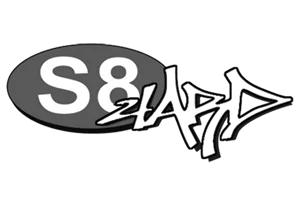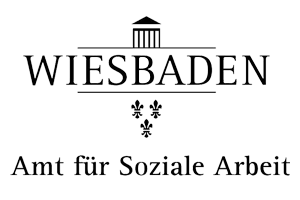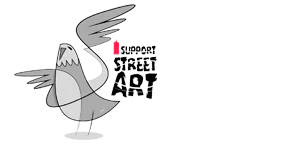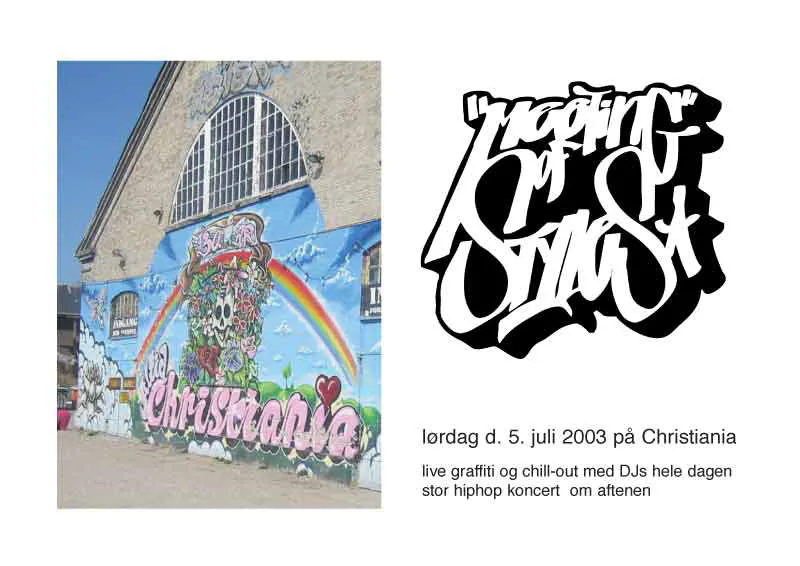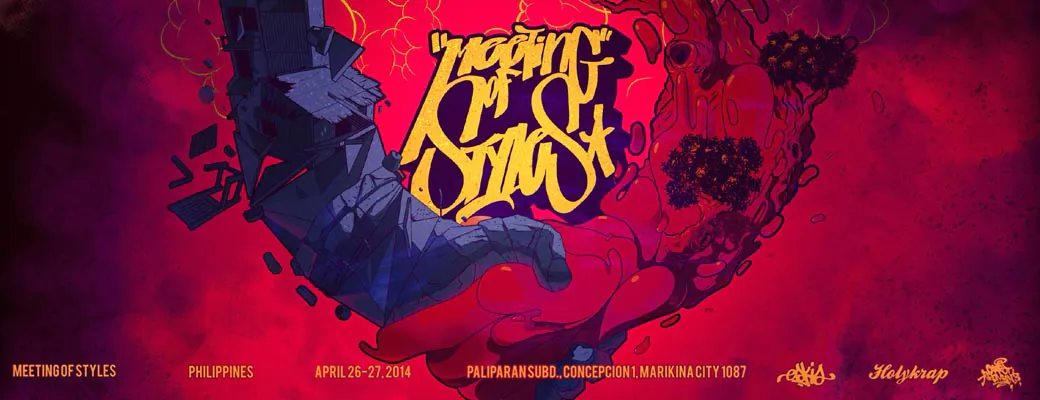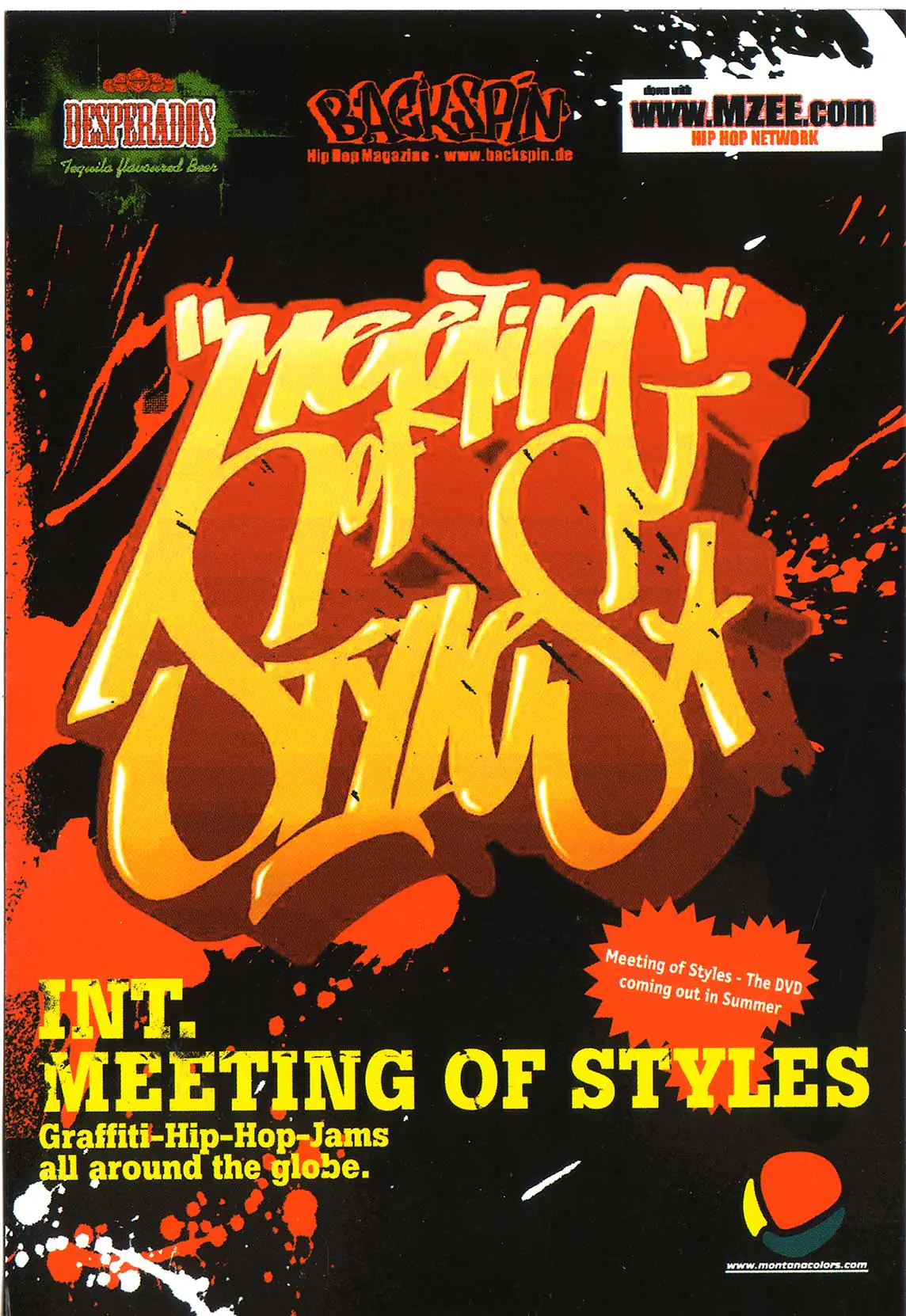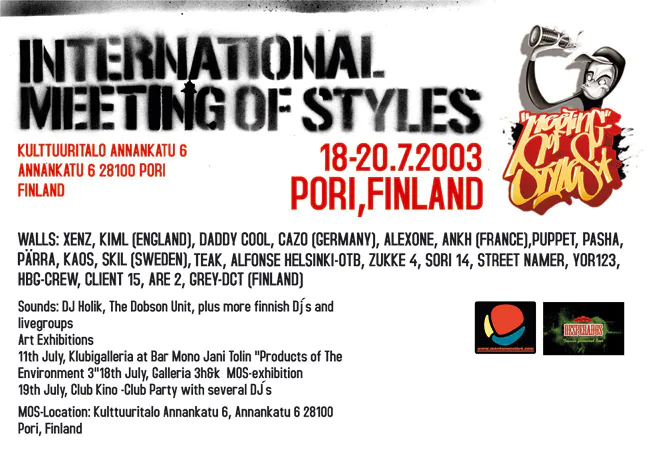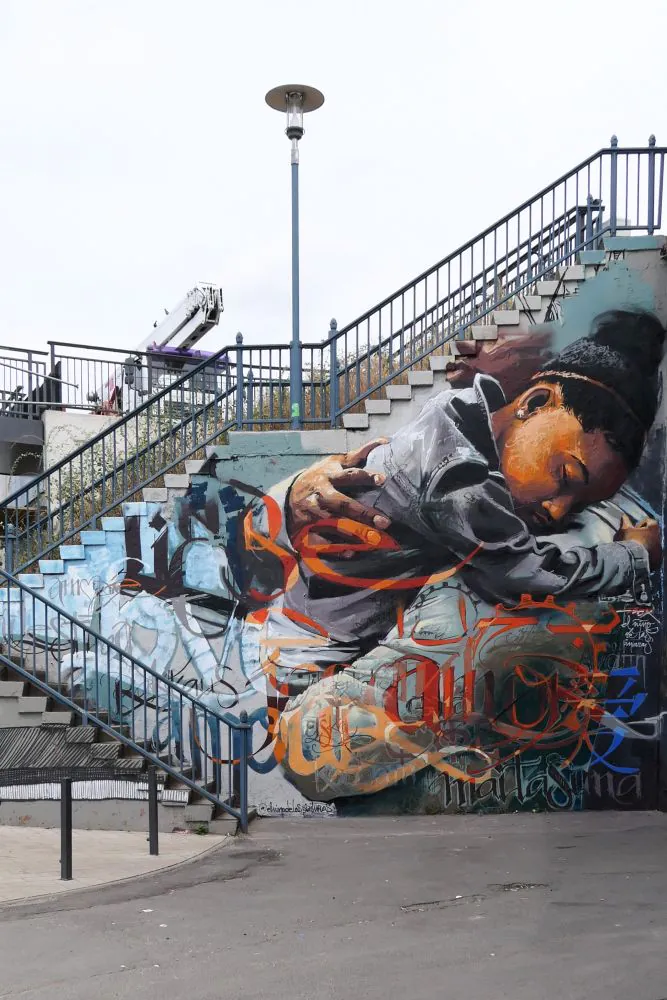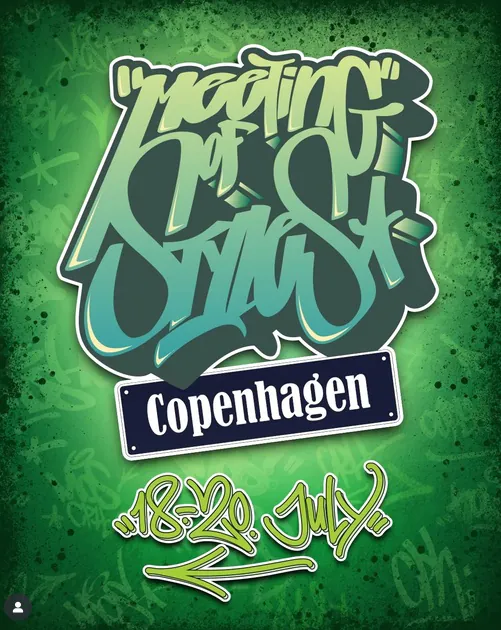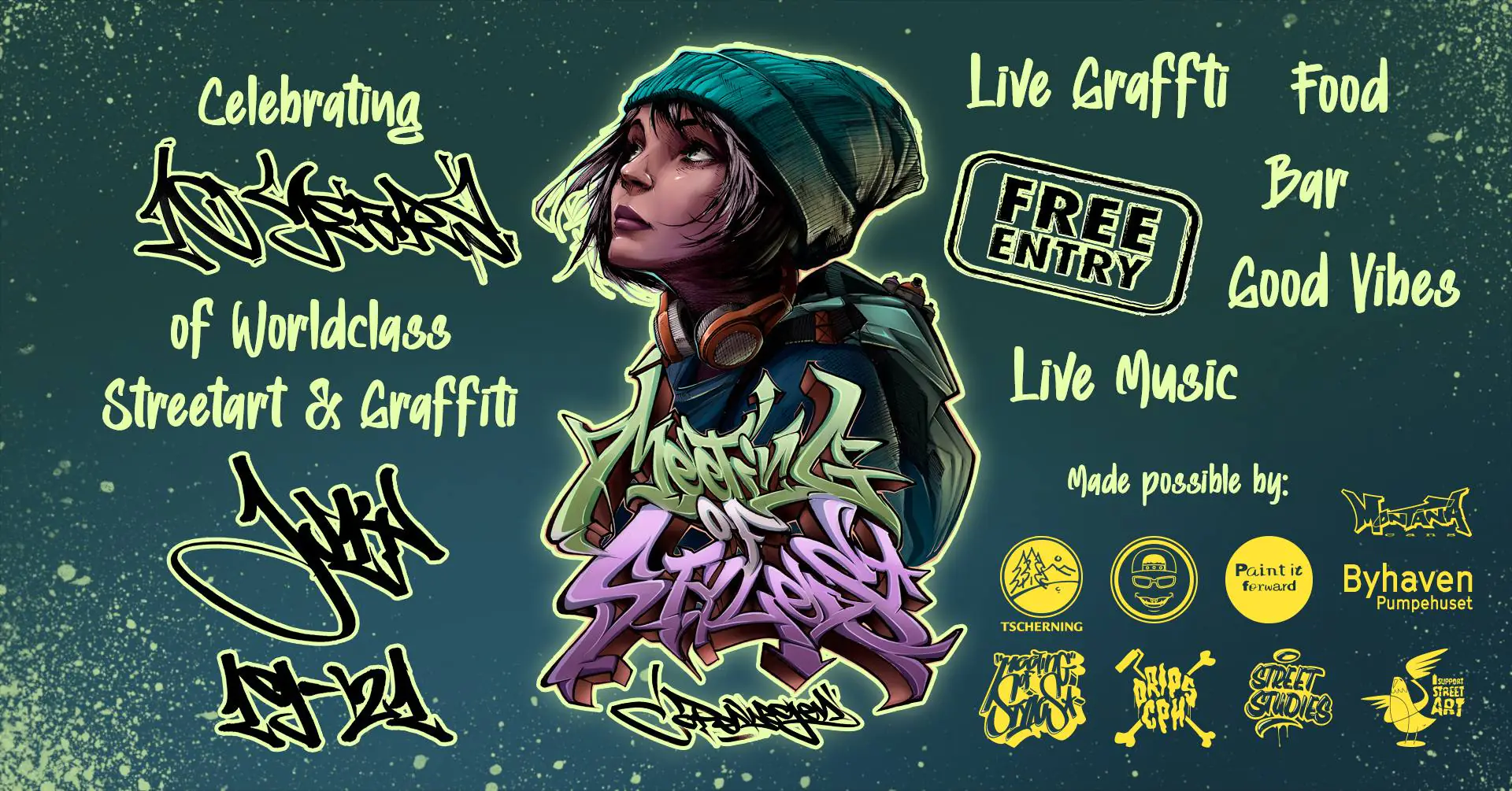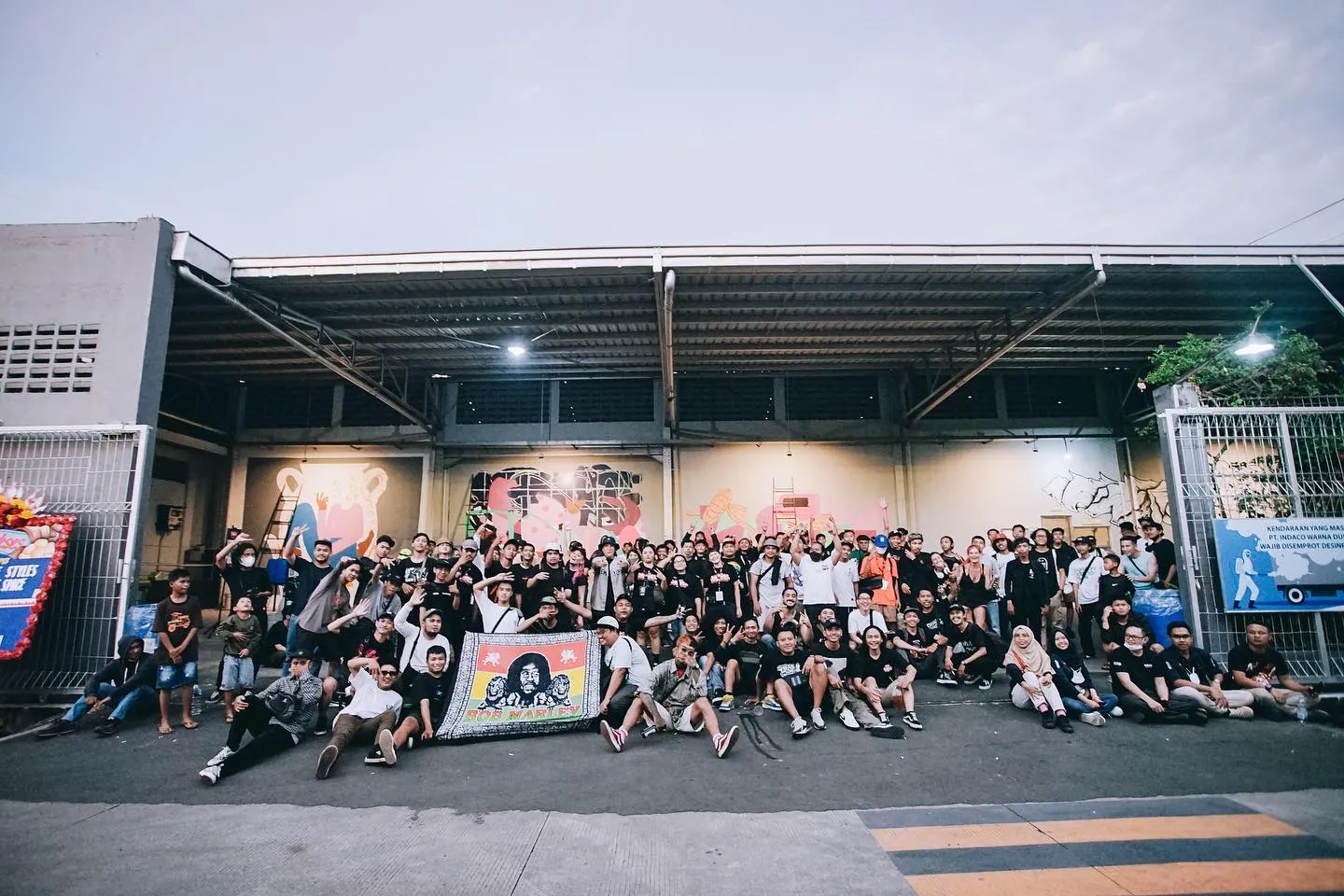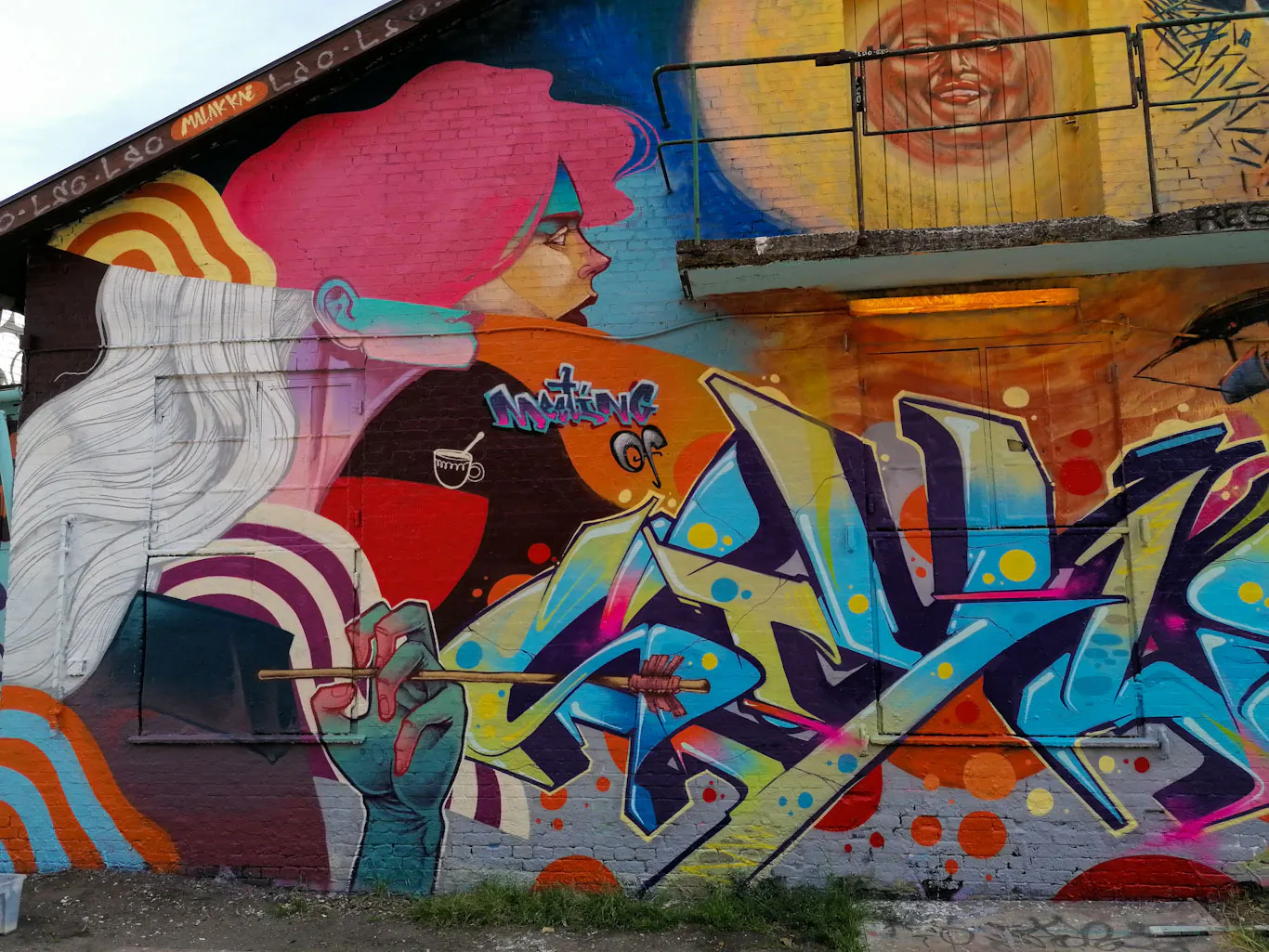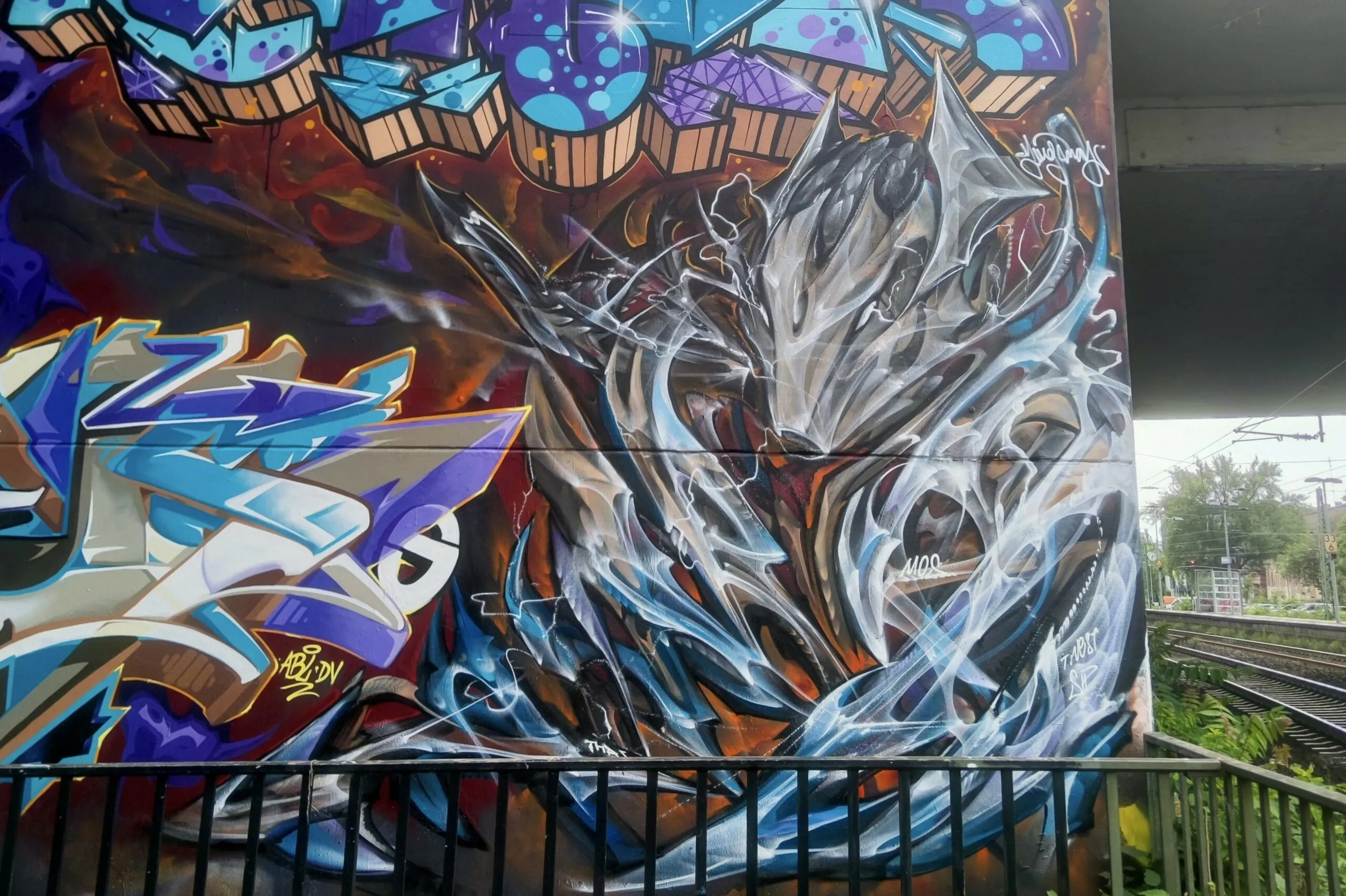The mental climate concerning Graffiti has never been really good in Copenhagen. After we had having problems with the first MOS at the HallOfFame in 02, it was a great fortune to get the option to do the event in the Freetown of Christiania.
Christiania, also known as Freetown Christiania is a partially self-governing neighbourhood of about 850 residents, covering 34 hectares (85 acres) in the borough of Christianshavn and has established semi-legal status as an independent community. Due to the Anti-Graffiti-campaign of the city of Copenhagen it is not easy to find good available spots over there. At the end, we found this beautiful part of the city called ?Free Town Of Christiania?. This area houses the last legal walls in Copenhagen.
There were four major walls: a 100 meters long wooden fence, two 70 meters long concrete walls of the main concert-hall and another concrete wall next to a street. The event happened Saturday and ended with a concert of famous danish rap-groups and the most famous scandinavian rap-act Loop Troop from Sweden. If you ever heard of Christiania, you know that the vibe was simply unique and great. Amount of visitors during the day-event including the concert: around 3000
Christiania was founded in 1971, when many people from different backgrounds began to take over an area of recently abandoned military barracks together as a protest against the Danish government. At the time many people in the larger Danish cities felt betrayed by the politicians, as they believed there was a lack of affordable housing. The inhabitants of the surrounding neighbourhood Christianshavn also wanted a green, open area for their children to use, away from the increasing traffic in Copenhagen. The spirit of Christiania quickly developed into one of communism, the hippie movement and the squatter movement, in sharp contrast to the site’s previous military use.
The neighbourhood is accessible through many entrances and cars are not allowed. Danish authorities have repeatedly removed the large stones blocking the main entrance claiming they need access to the area for fire trucks and ambulances in the event of a fire or medical emergency, yet the residents respond by placing them back each time as they feel suspicious that the authorities will instead use it for police operations. The people in Christiania have developed their own set of rules, completely independent of the Danish government. The rules forbid stealing, violence, guns, knives, bulletproof vests and hard drugs. Famous for its main drag, known as Pusher Street, where hash and Skunk weed were sold openly from permanent stands until 2004, it nevertheless does have rules forbidding hard drugs, such as cocaine, speed, ecstasy and heroin. The commerce is controversial, but since the rules require a consensus they cannot be removed unless everybody agrees. Since 1994, residents have paid taxes and fees for water, electricity, trash disposal etc. The future of the area remains in doubt, though, as Danish authorities continue to push for its removal. On Pusher Street, cameras are not allowed, and locals will wave their hands and shout “No photo!” if they see someone trying to take a picture.
Author: MoS
MOS Orga.
